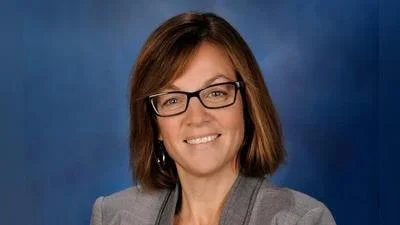Many children struggled with learning loss due to school closures and remote learning during the COVID-19 pandemic. | Ernesto Eslava/Pixabay
Many children struggled with learning loss due to school closures and remote learning during the COVID-19 pandemic. | Ernesto Eslava/Pixabay
Kevin Schmidt, a candidate for the Illinois House to represent District 114, recently shared his thoughts on school closures during the COVID-19 pandemic.
A UNICEF report from October 2021 found that government-mandated lockdowns and school closures negatively impacted children, leading to more fear, stress, anxiety, depression, alcohol and drug abuse, loss of learning, irregular physical activity and sleeping habits.
"Schools need to be open," Schmidt told the Metro East Sun. "I think early on during the pandemic exercising caution made sense. We did not know what we were dealing with, and we needed time to learn about the virus. But it became clear fairly quickly that children were not an at-risk population for COVID-19. Once that became clear, we needed schools to open up because the harm we did to kids taking them out of the classroom was far greater than the risks associated with the virus."
Enrollment in Pre-K-12 schools in Illinois declined by 3.6%, or roughly 70,000 students, during the 2020-2021 school year, according to Capitol News Illinois. Chronic absenteeism increased during that school year, with 22.8% of all Illinois students missing 10% or more of all school days. The number of students who exhibited grade level competence in math and English language arts decreased, with 17.8% fewer students demonstrating proficiency in math and 16.6% fewer students demonstrating proficiency in English.
"As I have traveled my district going door to door, the feedback I get is that people want their kids to be in school,” Schmidt said. “They understand the importance of in-person learning and they don’t want schools to close."
When asked who should be making the decisions regarding school closures, Schmidt said, "There is no reason for these decisions to be made in some office in Springfield or Chicago. These decisions belong at the local level. School boards working with local parents and families should be the ones making these decisions."
School districts that offered more in-person learning saw smaller declines in enrollment than schools that used mostly remote learning, Illinois Policy reported.
“We know from national studies from the (U.S. Centers for Disease Control and Prevention) that school districts serving primarily Black and Hispanic students provided the least access to in-person learning last year,” said Brenda Dixon, Illinois State Board of Education (ISBE) research and evaluation officer. “We suspect that less access to in-person learning contributed to lower engagement among Black and Hispanic students.”
In March, the ISBE announced a $17 million grant to establish a supplemental learning program for students impacted by learning loss due to school closures, according to the Dewitt Daily News. The program will be geared specifically towards low-income students.






 Alerts Sign-up
Alerts Sign-up